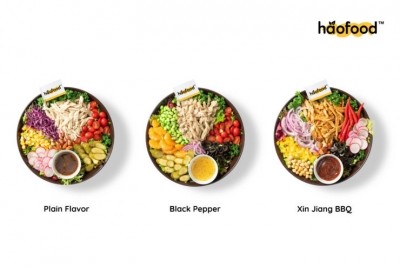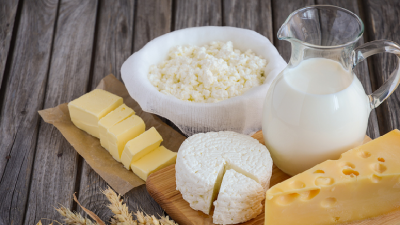Hybrid innovation and affordability: How food firms can meet Asia’s evolving protein demands

This is the opinion of Connell Caldic, a new-yet-old manufacturing firm formed from the merger of two legacy firms Connell (over 125 years) and Caldic (over 50 years) earlier this year.
“The thing about Asia is that the global trends for food and beverage are definitely here as well, be it personalisation, sustainability or health and wellness,” Connell Caldic APAC CEO Knud Mohr told FoodNavigator-Asia at the recent Fi Asia 2023 show in Bangkok, Thailand.
“This is being strongly driven here as consumers are getting more affluent and more conscious of their eating and drinking, especially in the post-COVID-19 era where a lot of focus is on staying healthy, so they are looking more closely at what ingredients to focus on or avoid when buying their groceries and foods.
“Amidst all this is the rise in demand for protein as consumers realised the importance of this and how consumption has not been high enough in many markets, and this initially helped the whole plant-based concept to really pick up so there was a really big boom a few years back.
“But as its popularity due to the trend of it all went up, the issue was that prices have been going up as well particularly for products in stores and worsened by ingredient cost hikes – and in Asia, there is really a very clear limit to which consumers are willing to pay extra so consumption went down after that and is lower than it could have been.
“But this is not to say it is the end for this market as it has now revamped and is focused on flexitarians as opposed to vegetarians the first time around – crucially, brands have moved to make products more affordable and one of the major strategies we are seeing is the rise of hybrid innovation, say using 70% meat and 30% plant-based to make a nugget as opposed to 100% meat in order to make this more affordable and healthier too.”
He added that the crucial factor here is for the messaging and marketing to be right, and for companies to be willing to be flexible when it comes to hybrid innovation.
“It is really a flexible market with many opportunities, but it is in no way wise to try to force consumers to change especially if the price is high – so the food manufacturers will need to be agile in these situations and adapt innovation strategies accordingly in order to cater to consumers,” said Mohr.
“It might be difficult for firms that had invested a large amount solely in vegetable and other plant-based strategies, but I would advise all brands to find a way to be as flexible as possible especially in these times when inflation and geopolitical conflicts are on the rise.
“Consumers are unlikely to be the ones to act differently and even less likely to be willing to spend more during these times, so it is up to the industry to react and adapt accordingly.”
Legacies and novelties
Connell and Caldic merged in March 2023 to become Connell Caldic, and exhibited as a joint firm for the first time in Bangkok at the Fi Asia 2023 show.
Together, both firms have a legacy of over 175 years, but Mohr believes the way forward is to focus on the new entity being a novel development for the company as a whole.
“Connell Caldic is strong due to our legacies, which have brought us coverage and presence in many countries worldwide – so our legacy and our culture will always be important, but at the same time we are conscious of staying on trend and up to date,” he said.
“This is very important in order to be representative of the new era and new times today, especially when it comes to food and beverage trends that tend to start in markets like the US and EU, so we can be amongst the first to bring this to APAC and be the first movers to stay ahead of the competition.
“Moving forward, we are eagerly – not cautiously, but eagerly - optimistic about the outlook of the food and beverage industry in the coming year as we are seeing a lot of activity coming back with supply chain challenges easing up, so although it has been a tough 2023 for everyone, we have a glass-half-full view for 2024 and beyond.”






















